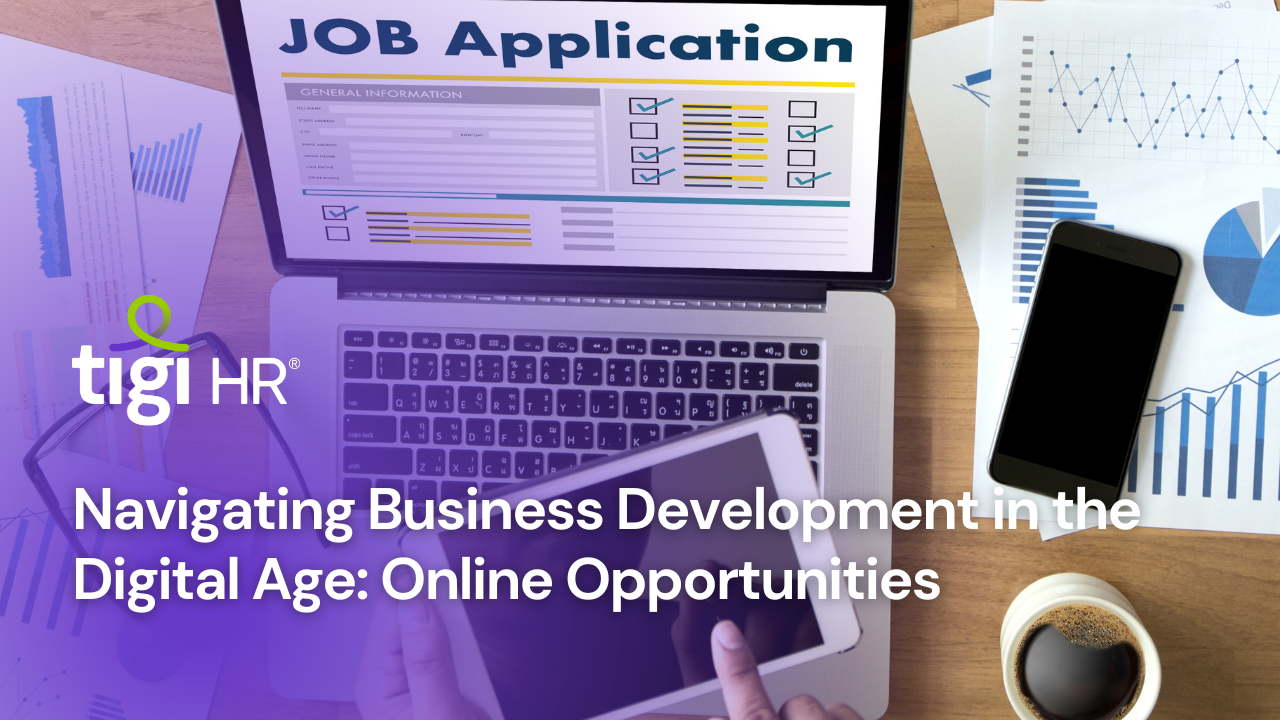The landscape of business development has evolved dramatically in the digital age. The traditional methods of cold calling, in-person meetings, and physical networking events are no longer the sole avenues for growth. In today’s interconnected world, online opportunities have become a pivotal force in shaping the success of businesses worldwide. In this article, we will explore the transformative impact of the digital era on business development, the myriad online opportunities available, and strategies for harnessing them effectively.
Section 1: The Digital Transformation of Business Development
1.1 The Digital Era’s Influence
The digital age has ushered in a profound transformation in how businesses approach development. According to a study by McKinsey, 70% of B2B decision-makers believe digital has accelerated the pace of decision-making.
1.2 Virtual Connections
The proliferation of digital tools and platforms has expanded the scope of business development beyond geographical boundaries. Virtual connections have become the norm, enabling companies to engage with clients, partners, and prospects worldwide.
Section 2: Online Opportunities for Business Development
2.1 Leveraging Social Media
Social media platforms offer an unprecedented opportunity for connecting with prospects and clients. Statistics from Hootsuite reveal that there are 4.55 billion active social media users globally.
2.2 Content Marketing
Content is king in the digital realm. Businesses can leverage blogs, videos, infographics, and podcasts to establish themselves as industry authorities and attract a dedicated audience.
2.3 Email Marketing
Email remains a powerful tool for business development. According to Statista, the number of email users is expected to reach 4.6 billion by 2025. Effective email marketing campaigns can nurture leads and foster client relationships.
2.4 Webinars and Online Events
Webinars and virtual events provide an excellent platform for showcasing expertise, engaging with prospects, and demonstrating the value of products or services. According to Adobe, webinars saw a 365% increase in attendance in 2020.
2.5 E-commerce and Online Sales
For many businesses, e-commerce has become a primary avenue for sales and revenue generation. In 2020, global e-commerce sales amounted to $4.28 trillion, according to Statista.
Section 3: Strategies for Effective Online Business Development
3.1 Build a Strong Online Presence
A well-crafted website, active social media profiles, and a compelling LinkedIn profile are essential components of a robust online presence. According to Stanford, 75% of users admit to making judgments about a company’s credibility based on its website design.
3.2 Leverage Social Selling
Social selling involves using social media platforms to identify, connect with, and nurture potential clients. According to LinkedIn, social selling leaders create 45% more opportunities than peers.
3.3 Content Marketing Strategy
Develop a comprehensive content marketing strategy that includes blog posts, videos, and downloadable resources. HubSpot reports that businesses with blogs generate 126% more leads than those without.
3.4 Data-Driven Decision Making
Harness the power of data analytics to gain insights into customer behavior and preferences. Data-driven decisions can lead to more targeted marketing efforts and increased ROI.
3.5 Effective Email Campaigns
Craft personalized and engaging email campaigns. According to Campaign Monitor, personalized emails generate a median ROI of 122%.
Section 4: The Role of Artificial Intelligence (AI) and Automation
4.1 AI-Powered Insights
AI can analyze vast amounts of data to provide actionable insights, helping businesses make informed decisions. According to Deloitte, 83% of early AI adopters have already achieved substantial (30% or greater) economic benefits.
4.2 Automation in Sales and Marketing
Automation tools streamline repetitive tasks, freeing up time for business development professionals to focus on relationship-building. HubSpot found that businesses using marketing automation increase their revenue by an average of 34%.
Section 5: Challenges and Considerations
5.1 Data Privacy and Security
With the digital landscape comes the responsibility to protect customer data. Data breaches can result in significant reputational and financial damage.
5.2 Digital Overload
The abundance of online opportunities can be overwhelming. Business development professionals must carefully choose their platforms and strategies to avoid spreading themselves too thin.
Conclusion on Business Development
In the digital age, business development has transcended traditional boundaries, opening up a world of online opportunities. Social media, content marketing, email campaigns, webinars, and e-commerce are just a few of the avenues that businesses can explore to connect with clients, foster relationships, and drive growth.
To succeed in this digital landscape, business development professionals must build a strong online presence, leverage social selling, embrace data-driven decision-making, and harness the power of AI and automation. Challenges such as data privacy and digital overload must be navigated with care.
As we move forward in this dynamic era, embracing the full potential of online opportunities is not just a strategy; it’s a necessity for businesses looking to thrive and remain competitive.
Also Check: Data Analytics in Business Development
Statistics and Insights:
- McKinsey reports that 70% of B2B decision-makers believe digital has accelerated the pace of decision-making.
- Hootsuite reveals that there are 4.55 billion active social media users globally.
- According to Statista, the number of email users is expected to reach 4.6 billion by 2025.
- Adobe reports a 365% increase in webinar attendance in 2020.
- Global e-commerce sales amounted to $4.28 trillion in 2020, according to Statista.
- Stanford research shows that 75% of users make judgments about a company’s credibility based on its website design.
- LinkedIn states that social selling leaders create 45% more opportunities than peers.
- HubSpot reports that businesses with blogs generate 126% more leads than those without.
- Deloitte finds that 83% of early AI adopters have already achieved substantial economic benefits.
- HubSpot’s research shows that businesses using marketing automation increase their revenue by an average of 34%.





